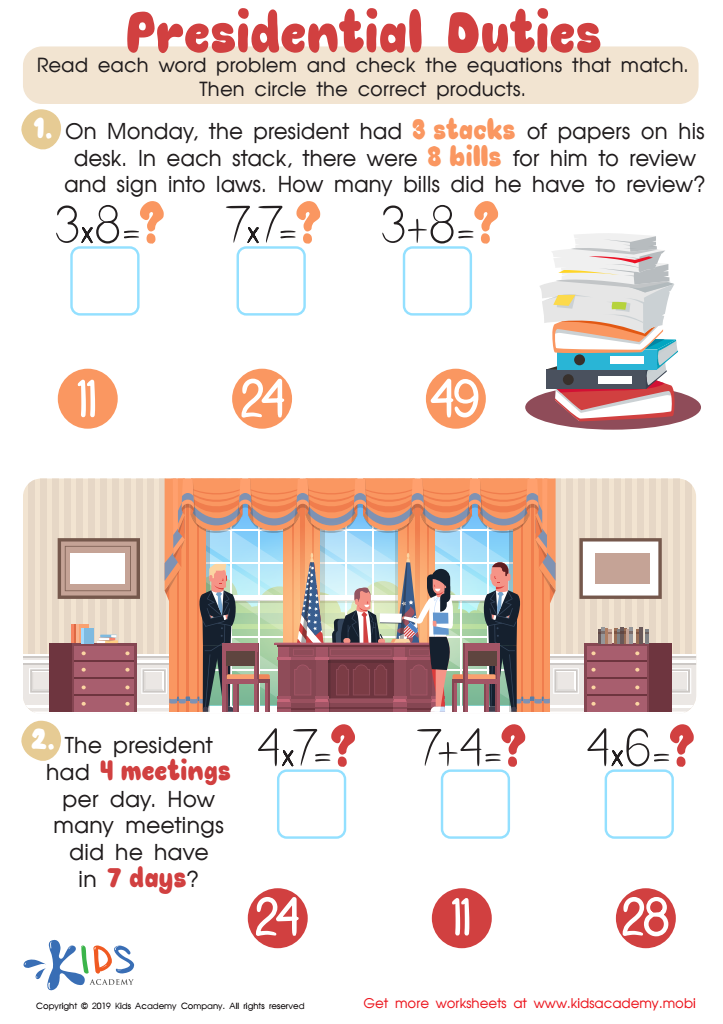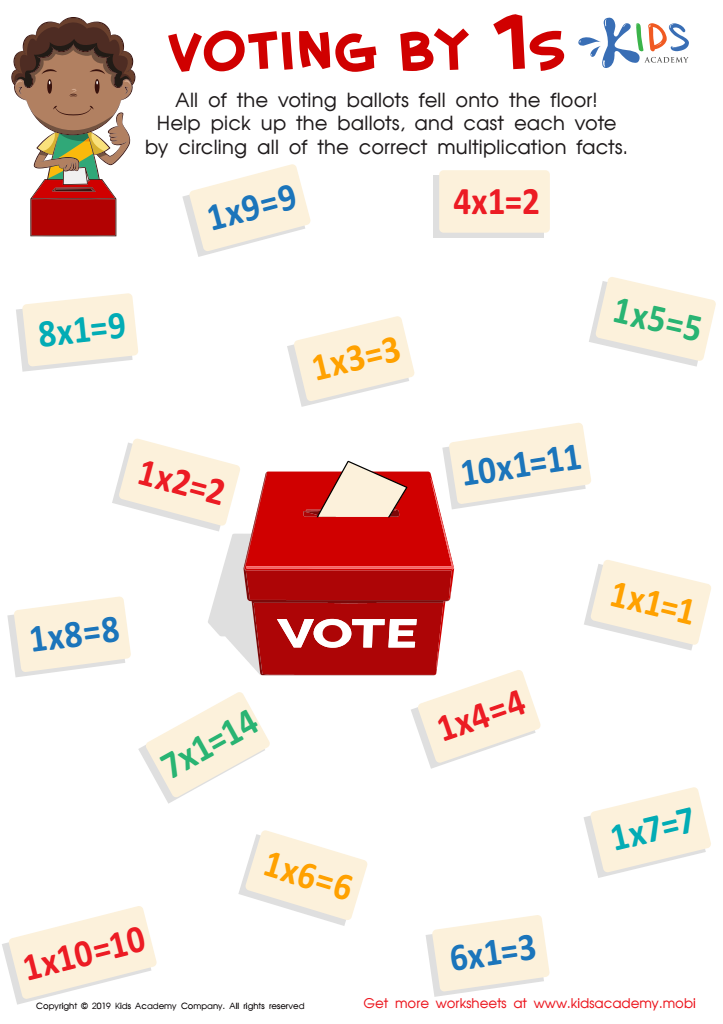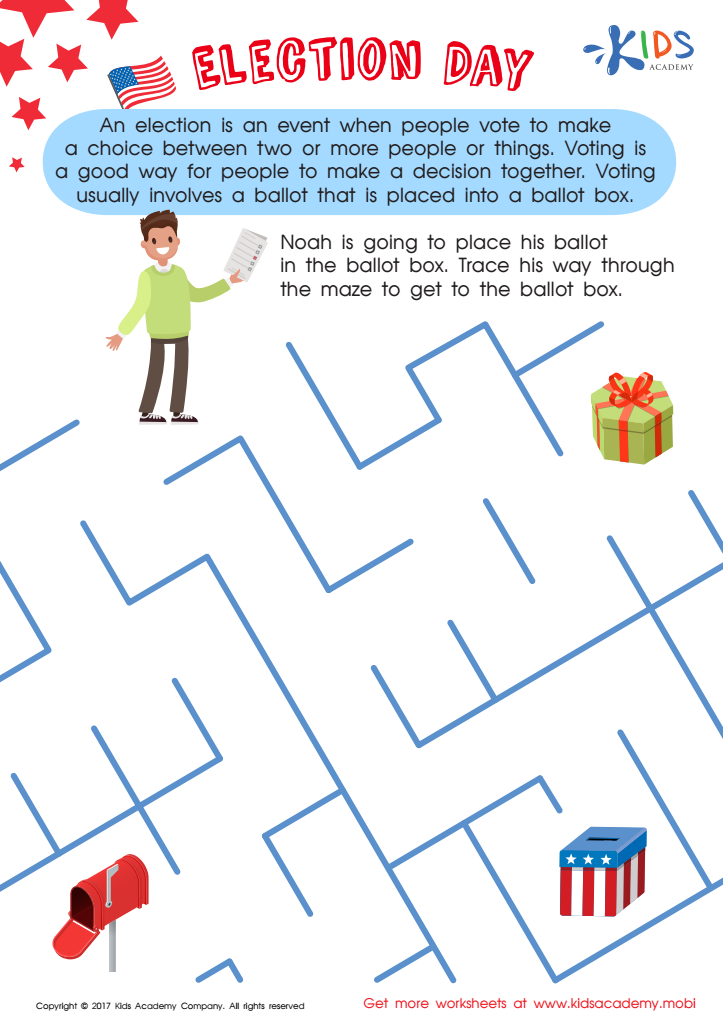Understanding democracy Governance and Civics Worksheets for Ages 5-9
3 filtered results
-
From - To
Build a strong foundation in social studies with our "Understanding Democracy: Governance and Civics Worksheets for Ages 5-9". These engaging, age-appropriate printable worksheets help young learners grasp the basics of governance, democracy, and civic duties. Our resources feature captivating visuals and interactive activities designed to develop critical thinking and a sense of responsibility in children. Through fun exercises, kids will explore important concepts such as voting, leadership, community roles, and the importance of laws. Help your child develop early civic awareness and understand the democratic process with these educational and engaging worksheets. Start your journey into democracy today!


Presidential Duties Worksheet


Voting by 1s Worksheet


Election Day Worksheet
Understanding democracy, governance, and civics at an early age fosters critical thinking, informed citizenship, and social responsibility. For children ages 5-9, these concepts can be simplified to fundamental principles like fairness, rights, duties, and community. Introducing these ideas early teaches kids how rules are made and why they're important, promoting respect for systems that maintain order and equity.
When parents and teachers invest in teaching these subjects, children learn about shared responsibility and the importance of everyone's voice, setting the groundwork for lifelong participation in democratic processes. Early exposure to such principles draws children into meaningful discussions about justice, empathy, and collective well-being. They learn the basics of voting, decision-making, collaboration, and active community involvement, which helps them grow into responsible adults who appreciate the value of democratic governance.
Additionally, understanding civics reduces civic disengagement by developing a sense of belonging and involvement in community affairs from a young age. As they grow older, these children are more likely to participate in societal activities positively and engage in problem-solving for the collective good. Introducing democracy and civics early thus cultivates engaged, informed, and conscientious future citizens.
 Assign to My Students
Assign to My Students














